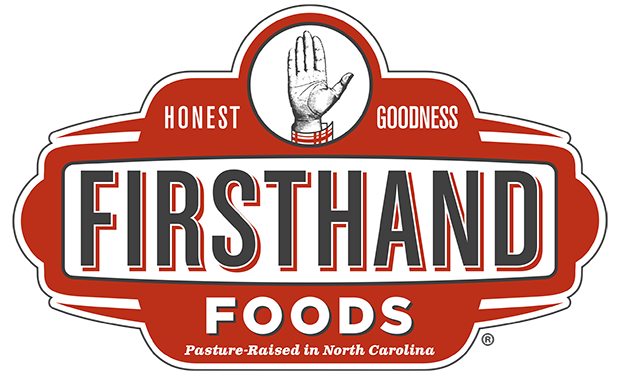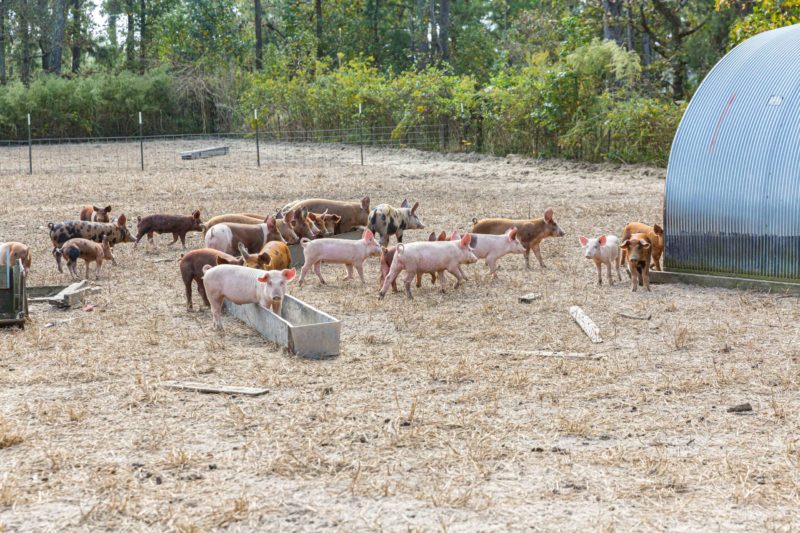Building a Reputable Brand – One of our core values at Firsthand Foods is authenticity, or what we’ve coined “being real.” It can feel risky to be real. Telling the truth potentially exposes our imperfections. But we’ve determined that openly sharing information about ourselves, our products, and our supply chain is essential to building both a positive team culture and a reputable brand.
From a branding perspective, we are challenged not to overly romanticize our farmers’ stories and to instead offer truthful narratives about our products and supply chain partners. It’s easy to indulge in “green-washing” and we see it happening all the time in the farm-to-table movement. Afterall, most of us want our customers to feel good about their food choices and it’s just easier to spin simplistic narratives. And while we’re committed to authentically connecting with our audience on social media, we’ve found that these platforms make it difficult to communicate complex, nuanced stories. Despite the challenge, we are committed to this principle of authenticity and to being real.
Here are a few of the core issues that challenge us to be real:
- Animals must die for us to eat meat. This is a painful truth for most people to face. It’s a conversation that on most days, we would honestly prefer to avoid. But we have to talk about it because every week we purchase animals and pay for their slaughter. That’s what it takes to get meat to market. We’ve come to understand that when we keep this conversation in the shadows, we fail to honor the animals who have sacrificed their lives for us to eat. And by extension we fail to recognize the critical role all of us have in trying to provide meat animals with a good life and a good death while they are in our care. So we welcome this conversation despite its difficulty.
- Our meat is not organic. We believe our meats are vastly preferable to industrial scale commodity meats. But they aren’t everything our customers want them to be or for that matter, all that they could be. For example, our meats are not organic despite the fact that a lot of people make this assumption. Someday we hope they will be. But the current costs associated with raising livestock organically, are prohibitive and unworkable for the markets we sell into. Most of the chefs, retailers, and food service customers in our network could not afford to purchase our meats if they were raised organically.
- Pasture-raised is not perfect. Raising animals outdoors on pasture has many benefits, but it’s not a perfect production system. Just like other methods of food production, there are impacts and hard decisions to be made. For example, pasture and woodlands are excellent habitat for hogs. It’s where they can express their innate sensibilities to root, wallow, and nest. From a humane perspective, this is where they should be. But when you let hogs exist too long in any one place, they can be destructive – peeling bark off trees and rooting up grass with their snouts (see featured photo of hogs on a dry lot). How to prevent this? One option is to give them noserings to make rooting painful. Not the most humane thing to do. Or farmers can use more land and move the hogs more often. But this isn’t really practical or always possible for small-scale farmers who lease most of their land. We’ve chosen to purchase hogs from a Co-Op of producers who follow standards that err on the side of being more humane in large part because this has been the top priority for consumers. But we recognize it comes at a cost and continue to look for ways we can improve the environmental performance of pasture-raised production systems.
- Regenerative? Maybe. We see this word used a lot lately and honestly, we’ve used it plenty of times ourselves to describe our beef farmers’ grazing practices. Regenerative speaks to farming practices that replenish soil and ecological resources, including sequestering carbon from the atmosphere and helping to fight climate change. Rather than being extractive, regenerative practices give back more than they take. As much as we love the concept, we are challenged to authentically make that claim about our products. We simply don’t have enough information that is specific to our region and our farms. But we’re working on it! Last month we submitted a grant proposal along with numerous partners that, if funded, will give us the resources to document and understand the regenerative capacity of the farms in our network. We are excited to take you on this journey of exploration and will keep you posted as we learn more.
So, there you have it. No brand is perfect. But if we aim to get anything exactly right, it’s our firsthand, transparent communication with you—the folks who purchase and consume our meat.

